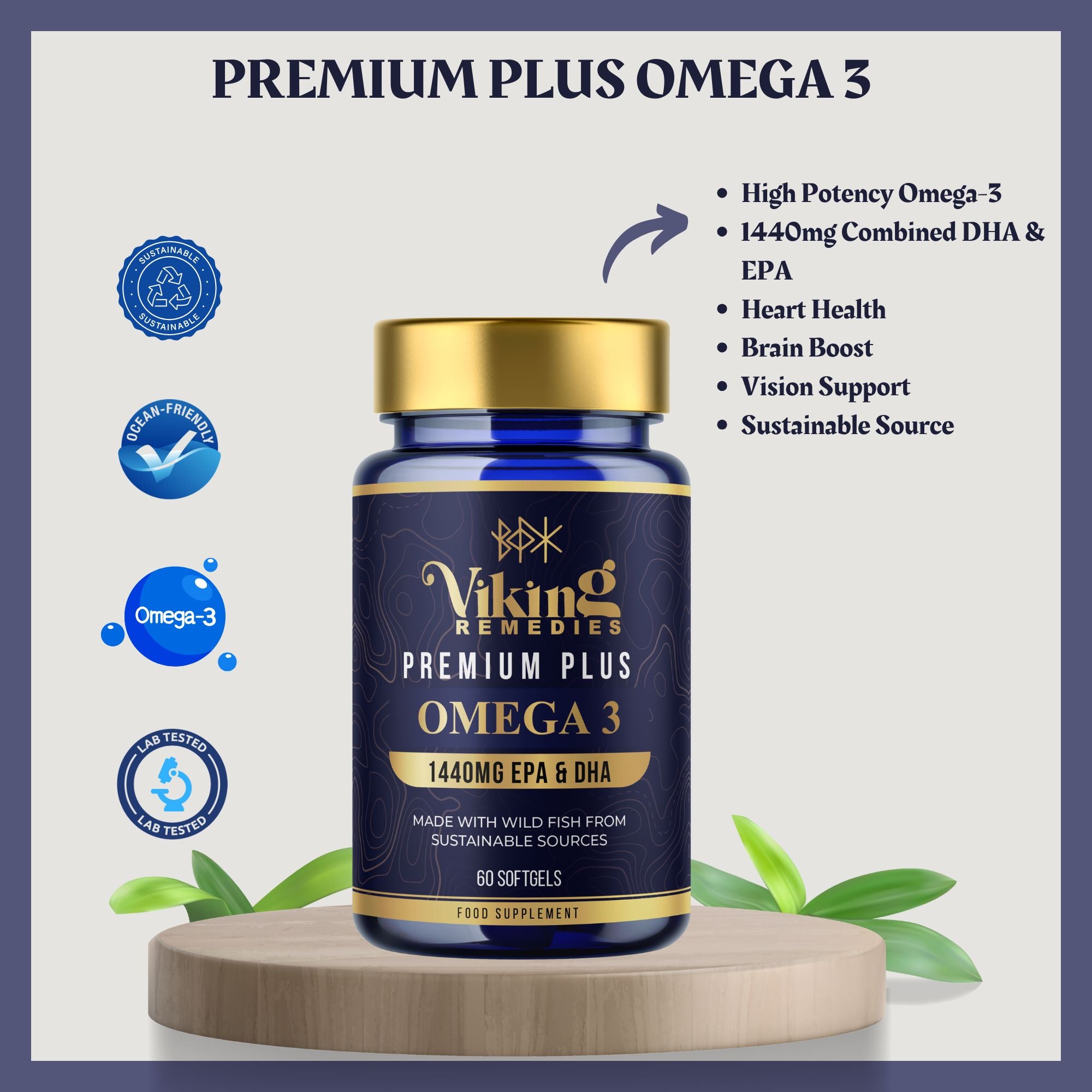In the ever-changing wellness and nutritional trends environment, a few basic realities stand strong and unchangeable. One such reality is the undeniable value of Omega-3s, important ingredients for your overall wellness that impact not only your heart, brain, and joints but many aspects of your life, too. Let's explore why Omega-3s matter and how to integrate them into your life in a convenient manner.
Omega-3s: Necessary Fats That Your Body Can't Make
Omega-3s fall under a group of fats that include polyunsaturated fats, and these fats have a key role in supporting overall wellness. Two specific forms of Omega-3s deserve a special mention: EPA (eicosapentaenoic acid) and DHA (docosahexaenoic acid). These Omega-3s are important ingredients that your body can't produce, and therefore, must include them through your foods and supplements.

So, why are Omega-3s important?
Omega-3s make a significant contribution to a range of bodily processes, including:
A healthy heart:
Omega-3s have long been touted for protecting your heart, and for a good reason: they can promote healthy blood cholesterol, maintain blood pressure, and even slow down heart disease.
A healthy brain:
DHA forms a significant portion of brain tissue and a key player in brain function, thinking, and mental well-being.
Healthy joints:
Omega-3s' anti-inflammatory capabilities can ease aches and stiffness, and in doing so, boost your range of motion and your flexibility.
Healthy eyes:
DHA is responsible for healthy eyes, particularly in protecting eyes from age-related macular degeneration, a common cause of loss of eyesight.
A balanced state of mind:
There is an ever-growing pool of evidence suggesting that proper Omega-3 intake helps maintain mental balance, possibly even curving symptoms of depression and anxiety.
The Challenge of Maintaining an Effective Omega-3 Intake
While oily fish including mackerel, salmon, and sardines stand out as brilliant sources of omega-3 fats, many have a problem getting these foods into their diets regularly. Today's food environment, with its proliferation of processed foods and lack of access to oily fish, can result in a lack of these important fats in one's diet.

How to Supplement Omega-3s
Eat Oil-Rich Fish: Aim for at least two portions of oily fish a week.
Try Supplements: Fish oils in supplements present an accessible alternative for a boost in your intake of omega-3s, for whom possibly enjoying, accessing, and consuming oily fish isn't feasible.
Plant Sources:
As foods produced from them have less bioavailability, flaxseed, chia seeds, and walnuts nevertheless contribute ALA (alpha-linolenic acid), your body can convert—though inefficiently—into EPA and DHA.
Adding Omega-3s to a Healthy Way of Living
Omega-3s represent important vitamins and fats whose role in overall wellbeing and wellness cannot be overestimated. By including foods rich in omega-3s in your diets and contemplating taking supplements, you can contribute to a healthy heart, brain, joints, eyes, and many, many additional dimensions of your life. Appreciating omega-3s is a sound long-term investment in your wellbeing and wellness.


Share:
Collagen Dosage: How Much Should You Take and When Will You See Results?
The Hydration Hero: Unveiling the Power of Hyaluronic Acid